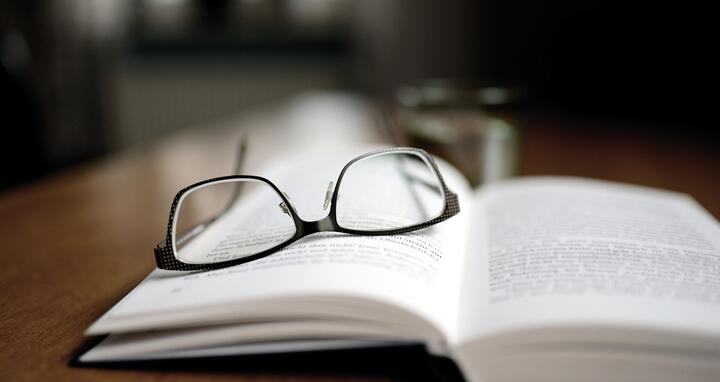What are you reading, Mr. Stewart?
Before I can get to what I am reading, I have to take this chance to tell you about a film I recently watched: “La Planète Sauvage”, aka “Fantastic Planet”, a 1973 science fiction animated film directed by René Laloux and written by Laloux with Roland Topor. It is a cult classic, which won the jury prize at Cannes Film Festival, and now 50 years later is an amazing film which I’ll never forget!
Put simply, humans exist as mouse-sized animals on a strange planet inhabited by French-speaking blue aliens. For these aliens, humans are pets or pest, much like the mouse on Earth. The film follows one particular human’s life as he becomes incidental to a change in this order.
The surreal animation is gorgeous, and in similar style as Terry Gillam’s work in “Monty Python’s Flying Circus”. Hand-drawn scenes are alive with colour and alien shapes – the planet is totally fantastic. This is underscored by an intriguing jazzy funky prog-rock soundtrack, through which even shocking scenes are imbued with elements of excitement and humor. Life is a struggle, especially for the tiny and oppressed – but from an external point of view (ours as the viewers) isn’t it also fascinating? Still, in moments when the music stops and death is on the screen, there is a jarring allegorical message in the film.
Allegorical, but not all too moralizing. There is understanding also for the oppressors, who are not inherently evil, but lack perspective. After all, it can be fascinating to watch animals run around, play with toys, fight, live. And in their policy-making, the alien’s speciesism is a reasonable conclusion of a stubborn mindset. Their greatest mistake is underestimating the potential of the oppressed, keeping them downtrodden and suppressed rather than seeing them flourish.
Trivializing animal intelligence is a common mistake in the history of biology, and is baked into our cultural and social backgrounds. So, to not underestimate animal intelligence, I will keep the parable of “La Planète Sauvage” in mind. Not that I have to try – the imagery lives rent-free in my head, a collage of whistling crystals, headless dancing statues, meditating aliens and laughing plant life.
Books, books, books
But if you ask me what I’m currently reading, that’s usually in plural, and it’s often non-fiction popular science. One book I’m currently reading is “The Consciousness Instinct: Unraveling the mystery of how the brain makes the mind” by Michael S. Gazzaniga – a good example of how writing in popular book format can be a platform for speculation and more casual rumination on scientific topics. I love reading about different big-picture ideas in (neuro)science, I feel it keeps me inspired and creative as a scientist.
I also love learning about the history of ideas in science. What did ancestral researchers think about the mysteries of the universe, before we knew what we now take for granted? In “The Consciousness Instinct”, Gazzaniga starts with a historical summary to set the field for contemporary ideas. Another really insightful book in this sense is Matthew Cobb’s “The Idea of the Brain: The Past and Future of Neuroscience”. Cobb and Gazzaniga separately review the long philosophical and scientific history of brain and mind research, going back to well before the term neuroscience ever existed. In doing so, they put the development of knowledge into context, critically evaluating what ideas survived and why, and which need to be re-examined before we forget they were based on assumptions.
Media and art – in filmed or written form – give us perspectives to broaden our own thinking. I think we collect little sign-posts in our heads from stories and histories, which can pop up to ask us questions. Cobb’s and Gazzaniga’s books ask me: Which ghosts of the past are still affecting our thinking? And “La Planète Sauvage” asks me: How might I be underestimating animal intelligence, or in general the wonders of biological life?
René Laloux, and Alain Goraguer: La Planète Sauvage. France/ Czechoslovakia, 1973.
Matthew Cobb: The idea of the brain: The past and future of neuroscience. Hachette UK, 2020.
Michael S. Gazzaniga: The consciousness instinct: Unraveling the mystery of how the brain makes the mind. Farrar, Straus and Giroux, 2018.




